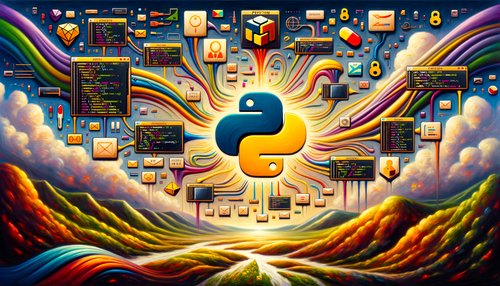Using Django Rest Framework Serializers for Data-Driven Development
Data-driven development is becoming increasingly popular in the modern world. With the rise of Big Data, developers are now able to create applications and websites that are driven by data. This means that developers can create applications that are more intelligent, responsive, and efficient. One way to achieve this is by using Django Rest Framework Serializers.
Django Rest Framework Serializers are a powerful tool for creating data-driven applications. The serializers allow developers to take complex data structures and convert them into a format that can be easily consumed by a web application. This makes it easier to store and retrieve data from a database. The serializers also provide a way to validate the data before it is stored or retrieved.
Using Django Rest Framework Serializers is relatively simple. The first step is to create a serializer class. This class will define the fields that will be included in the serialized data. The fields can be simple types, such as strings and integers, or more complex types, such as dates and times. The serializer class will also define the validators that will be used to validate the data before it is stored or retrieved.
Once the serializer class has been created, it can be used to serialize data. This can be done by passing the data into a serializer object and then calling the serialize() method. This will return a dictionary containing the serialized data. The dictionary can then be used to store the data in a database or to send the data to a web application.
Using Django Rest Framework Serializers is a great way to create data-driven applications. It allows developers to quickly and easily serialize data and store it in a database. It also provides a way to validate the data before it is stored or retrieved.
Here is a simple example of how to create a serializer class:
class MySerializer(serializers.Serializer):
name = serializers.CharField()
age = serializers.IntegerField()
date_of_birth = serializers.DateField()
In this example, we have defined three fields: name, age, and date of birth. We can then use this serializer to serialize data:
data = {
'name': 'John Smith',
'age': 30,
'date_of_birth': '1990-01-01'
}
serializer = MySerializer(data=data)
serialized_data = serializer.data
In this example, we have passed the data into the serializer object and then called the serialize() method. This will return a dictionary containing the serialized data. The dictionary can then be used to store the data in a database or to send the data to a web application.
Using Django Rest Framework Serializers is a great way to create data-driven applications. It allows developers to quickly and easily serialize data and store it in a database. It also provides a way to validate the data before it is stored or retrieved. With the rise of Big Data, using Django Rest Framework Serializers is becoming increasingly important for data-driven development.
Recent Posts

Unlocking the Power of Terraform: Mastering Conditional Expressions for Smarter Infrastructure Automation

Unveiling the Future: Navigating the Public Interface of Apache Airflow for Streamlined Workflow Management
Apache Airflow
Mastering Workflow Automation: Unconventional Apache Airflow How-To Guides for the Modern Data Enthusiast
Apache Airflow
Mastering the Cloud: Unveiling AWS CloudFormation Best Practices for Seamless Infrastructure Management



